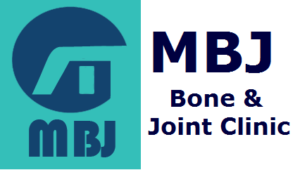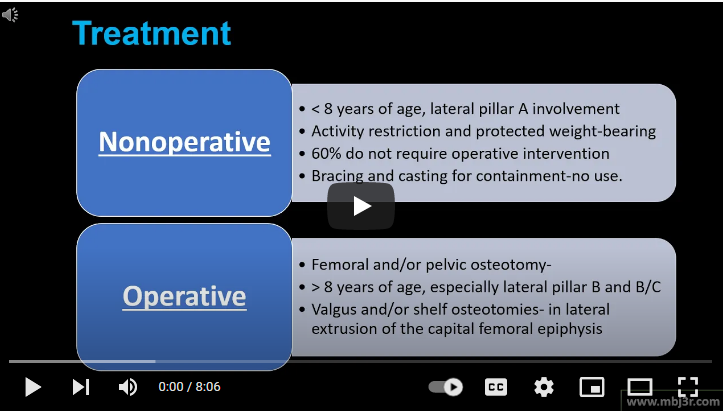

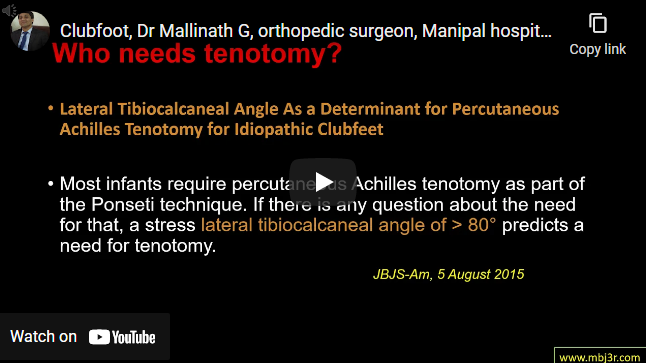
Most common congenital deformities of the lower extremity with incidence 1-2 cases per 1000 live births Between six and twelve weeks of gestational age, the fetal foot assumes a clubfoot position Deformities include : hindfoot varus and equinus, forefoot adductus and midfoot cavus Talus has a short neck with medial and plantar deviation of the anterior end. Also the medial…
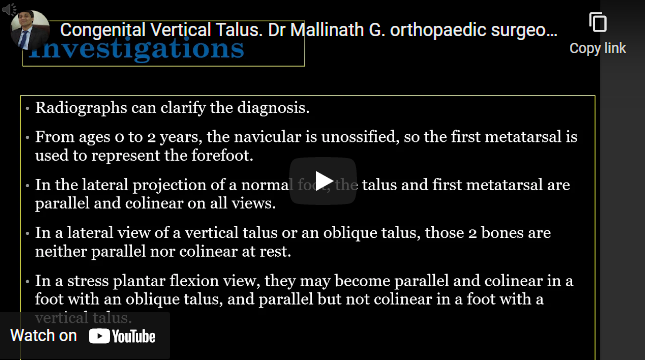
Dorsolateral dislocation of the talonavicular joint genes identified relate to homeobox transcription factors Suspect in infants presenting with plantar fullness in the medial midfoot and a dorsolateral crease D/D: Calcaneovalgus foot, Oblique talus Seimon first showed that minor surgery—a limited dorsolateral capsulotomy and pinning—is sufficient Reverse Ponseti casting with or without dorsolateral capsulotomy+pinning +/- percutaneous TA lengthening Talectomy-indicated in resistant…
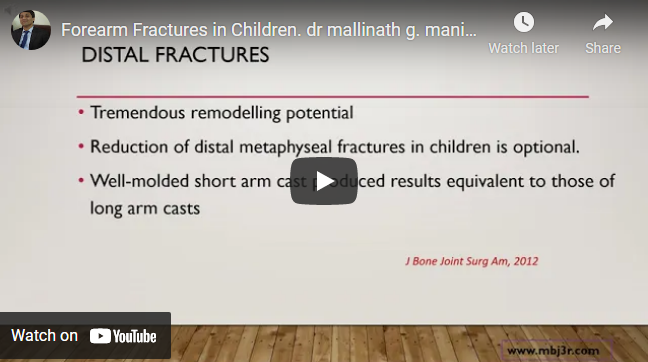
greater remodelling potential Galeazzi and Monteggia are common fractures Diaphyseal fractures : long arm cast with acceptable reduction consists of angulation <15°and alignment of the proximal and distal rotational landmarks Proximal-third radius fractures are the hardest to control nonoperatively Surgical fixation for unacceptable reduction with plates or intramedullary nails is accepted Plates : higher complication rates and difficult to remove
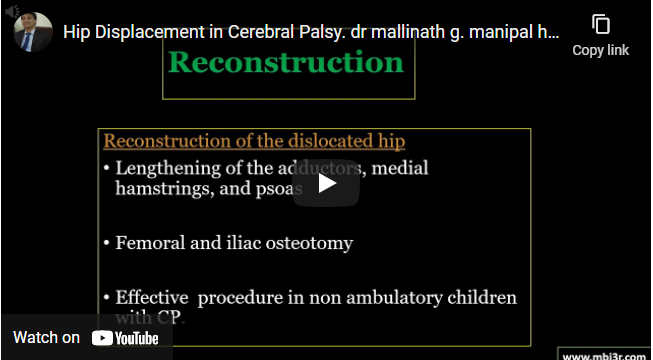
Cerebral palsy have a 30% risk of hip displacement Displacement leads to nonconcentric which ends up with degenerative and painful hip Hip surveillance is effective for detecting and managing hip displacement in CP Prevention of dislocation: Adductor/psoas muscle lengthening , Femoral osteotomy , Injections of botulinum toxin Surgical reconstruction successfully reduces these hips and improves quality-of-life scores Indications for THR…
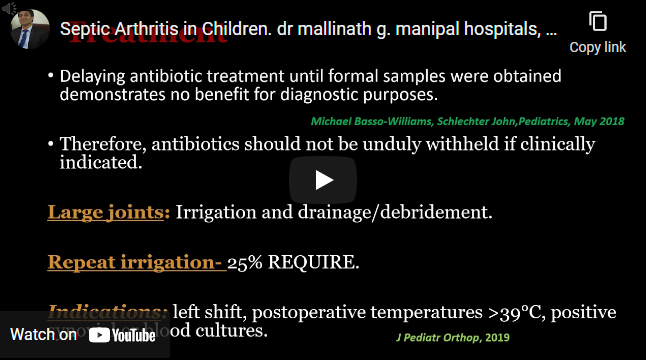
Synovium is susceptible to bacterial seeding Kochers predictors : Refusal to bear weight, Temperature >38.5°C, White blood cell count >12,000 cells/mm3, Erythrocyte sedimentation rate >40 mm/hr, C-reactive protein (CRP) levels >2.0 mg/dL (>20 mg/L) Ultrasound is useful for demonstrating effusion as well as for guiding aspiration MRI is indicated if ultrasound or aspiration is negative Antibiotics should not be unduly…
